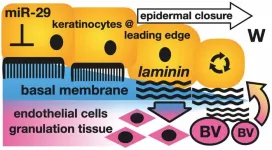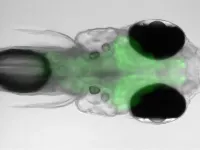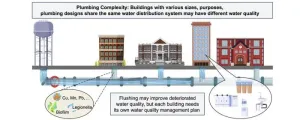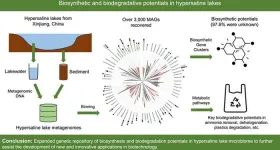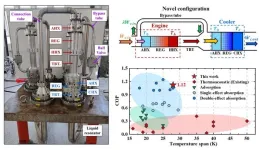Composed of cancer research leaders from academic, government, industry, and advocacy fields, SU2C’s SAC sets direction for research initiatives, reviews proposals for new grant awards, and conducts rigorous oversight of all active grants in the SU2C research portfolio in collaboration with SU2C’s president and CEO Julian Adams, Ph.D.
World renowned cancer researcher and Nobel laureate Phillip A. Sharp, Ph.D., who has chaired the SAC since SU2C launched in 2008 and is an institute professor at Massachusetts Institute of Technology, is transitioning to emeritus status along with several other SAC members. Longtime SU2C SAC vice chair and leading translational cancer researcher, William G. Nelson, M.D., Ph.D., director of the Sidney Kimmel Comprehensive Cancer Center at Johns Hopkins University, is now chairperson of the SAC.
“The contributions of Dr. Sharp and our other emeritus SAC members to cancer research and SU2C’s mission are unparalleled,” said Adams. “I have had the privilege of working alongside these trailblazers as a member of SU2C’s SAC since the organization’s inception and more recently I’ve appreciated the SAC’s guidance as I transitioned to leadership roles within SU2C. Our newly appointed SAC members bring critical expertise to the table in artificial intelligence, immunotherapy, chemical biology and nuclear medicine. I know that their input, as well as the contributions of the entire SAC – led by Dr. Nelson – will help us find more cures for this terrible disease.”
In addition to the key new appointments on the SAC, SU2C has strengthened its relationship with its scientific partner, the American Association for Cancer Research (AACR). AACR has played a critical role in administering SU2C-funded teams since 2008, assisting with SU2C’s scientific review process and the administration of funds under the direction of the SAC and SU2C leadership. This synergistic collaboration helps propel both organizations’ missions in the fight against cancer.
“As a member of AACR for over 25 years, I look forward to continuing a fruitful collaboration with the AACR as we fund and oversee cancer research that achieves excellence and makes a significant difference in the lives of people impacted by cancer,” said Adams.
“The AACR is very proud to serve as the scientific partner of SU2C,” said Margaret Foti, Ph.D., M.D. (hc), chief executive officer of the AACR. “Our long and productive relationship has enabled us to keep moving forward together on this incredible journey to advance progress against cancer. We are thrilled to work with Dr. Adams, a true innovator and leader in the field, as well as with the extraordinary scientists on the SU2C Scientific Advisory Committee, in our shared mission to prevent and cure all cancers.”
In addition to Nelson as chairperson, the SU2C SAC executive committee now includes vice chairs Arnold J. Levine, Ph.D., professor emeritus at Institute for Advanced Study and Cancer Institute of New Jersey and John D. Carpten, Ph.D., chief scientific officer and cancer center director at City of Hope. Carpten will now chair SU2C’s Health Equity Committee, which oversees SU2C’s efforts in cancer health equity.
“I’m incredibly grateful for this opportunity and I know that together with Dr. Adams, we will help guide SU2C’s continued efforts to fund cutting-edge research in areas such as early detection and immunotherapy with the goal of helping more people survive or prevent cancer,” said Nelson.
All new members of the SU2C SAC, as well as emeritus members, are listed below and the complete SU2C SAC roster can be found on SU2C’s website.
NEW SU2C SAC MEMBERS
Michael A. Caligiuri, M.D., professor, Department of Hematology & Hematopoietic Cell Transplantation, City of Hope Steven Carr, Ph.D., senior director of proteomics and institute scientist, Broad Institute Alan D. D’Andrea, M.D., director, Susan F. Smith Center for Women’s Cancers, Dana-Farber Cancer Institute Luis A. Diaz, Jr., M.D., head of the Division of Solid Tumor Oncology and Grayer Family Chair, Memorial Sloan Kettering Cancer Center S. Gail Eckhardt, M.D., associate dean of experimental therapeutics, Baylor College of Medicine; associate director of translational research, Dan L Duncan Comprehensive Cancer Center Michael Fischbach, Ph.D., Liu (Liao) Family Professor of Bioengineering, Stanford University David Kaufman, M.D., Ph.D., partner, Third Rock Ventures David G. Kirsch, M.D., Ph.D., senior scientist, Peter and Shelagh Godsoe Chair in Radiation Medicine, Princess Margaret Cancer Centre Lecia Sequist, M.D., MPH, Landry Family Professor of Medicine, Harvard Medical School; program director, Cancer Early Detection and Diagnostics Clinic, Massachusetts General Cancer Center Peter Sorger, Ph.D., Otto Krayer Professor, Department of Systems Biology and head of the Harvard Program in Therapeutic Sciences – HiTS, Harvard Medical School SU2C SAC EMERITUS MEMBERS
Elizabeth H. Blackburn, Ph.D., professor emerita, The University of California, San Francisco Lisa Diller, M.D., chief medical officer, Dana-Farber Cancer Institute/Boston Children's Cancer and Blood Disorders Center William N. Hait, M.D., Ph.D., global head of External Innovation, Janssen Pharmaceutical Companies of Johnson & Johnson William G. Kaelin, Jr., M.D., Sydney Farber Professor of Medicine, Dana-Farber Cancer Institute and Harvard Medical School Tak W. Mak, Ph.D., chief scientific officer, Campbell Family Institute, University of Toronto Andre Nussenzweig, Ph.D., chief, Laboratory of Genome Integrity and NIH distinguished investigator, Center for Cancer Research, National Cancer Institute Roderic I. Pettigrew, Ph.D., M.D., CEO of engineering Health (enHealth), Robert A. Welch Professor and executive dean, School of Engineering Medicine, Texas A&M University and Houston Methodist Hospital Cecil B. Pickett, Ph.D., former president of R&D, Biogen Inc. Carol L. Prives, Ph.D., Da Costa Professor, Columbia University
# # #
Media Contacts:
Fiona McRobert Mirabai Vogt-James
Stand Up To Cancer Stand Up To Cancer
fmcrobert@su2c.org mjames@su2c.org
About Stand Up To Cancer
Stand Up To Cancer® (SU2C) raises funds to accelerate the pace of research to get new therapies to patients quickly and save lives now. SU2C is a 501(c)(3) charitable organization and was initially launched as a division of the Entertainment Industry Foundation. Established in 2008 by media and entertainment leaders, SU2C utilizes these communities’ resources to engage the public in supporting a new, collaborative model of cancer research, to increase awareness about cancer prevention, and to highlight progress being made in the fight against the disease. As of April 2023, more than 3,000 scientists representing more than 210 institutions are involved in SU2C-funded research projects.
As SU2C’s scientific partner, the American Association for Cancer Research (AACR) and a Scientific Advisory Committee, led by William G. Nelson, M.D., Ph.D., conduct rigorous competitive review processes to identify the best research proposals to recommend for funding, oversee grants administration, and provide expert review of research progress.
Current members of the SU2C Founders and Advisors Committee (FAC) include Katie Couric, Sherry Lansing, Kathleen Lobb, Lisa Paulsen, Rusty Robertson, Sue Schwartz, Pamela Oas Williams, and Ellen Ziffren. The late Laura Ziskin and the late Noreen Fraser are also co-founders. Julian Adams, Ph.D., serves as SU2C’s president and CEO.
For more information, visit StandUpToCancer.org, Instagram, TikTok, Twitter, Facebook, and YouTube.
END

